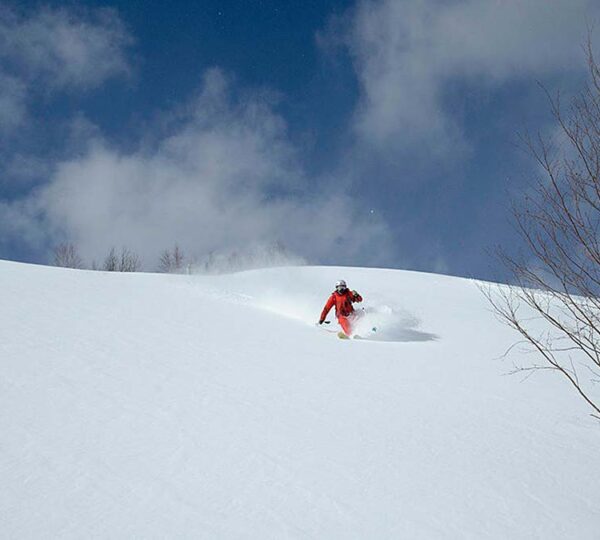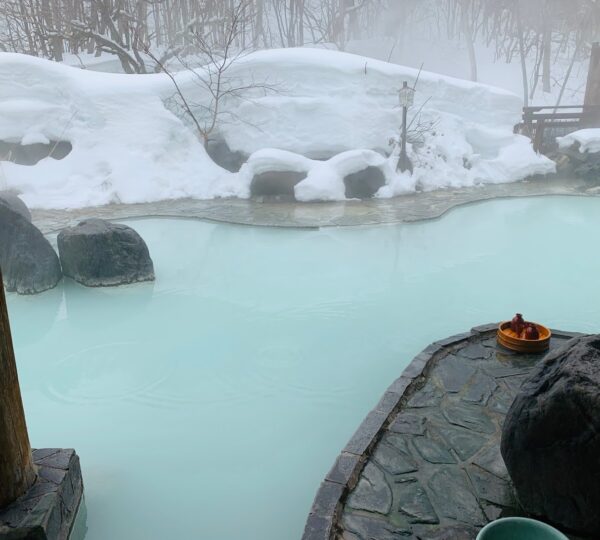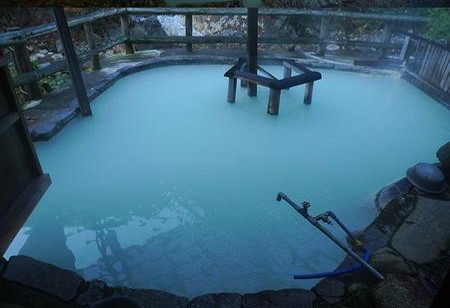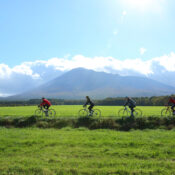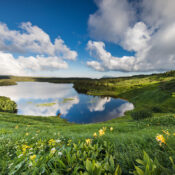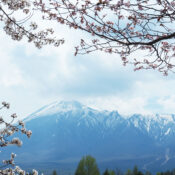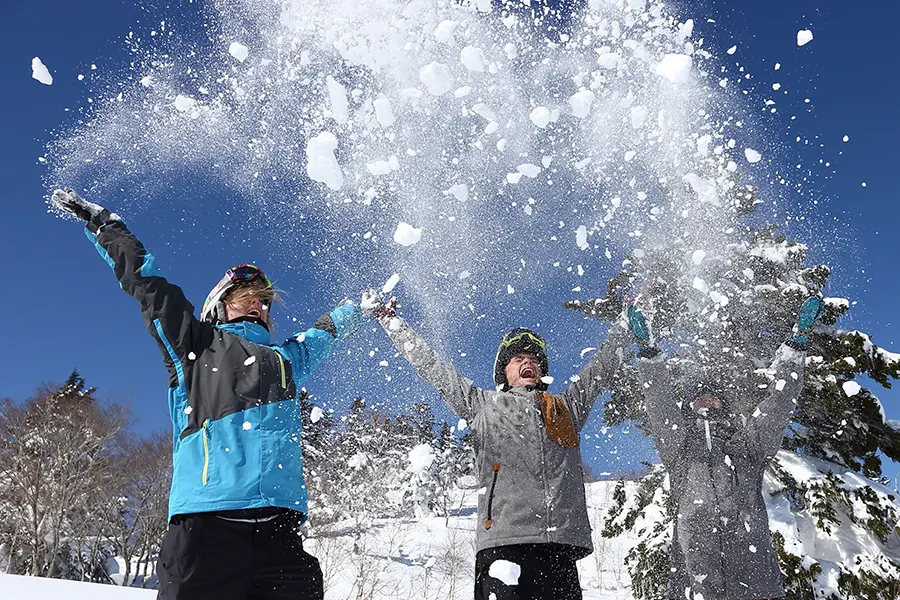

Hachimantai is well-known both in Japan and abroad for its extremely dry powder snow. But there’s even more to winter here than just fresh powder and great slopes. Here’s our guide to making your trip to this winter wonderland even better.
+ Hitting the Backcountry

For advanced skiers and snowboarders, why not take your experience to the next level in Hachimantai’s backcountry?
With breath-taking views and untouched extremely dry powder snow, it’s easy to see why Hachimantai’s vast backcountry draws powder hounds from around the world every year.
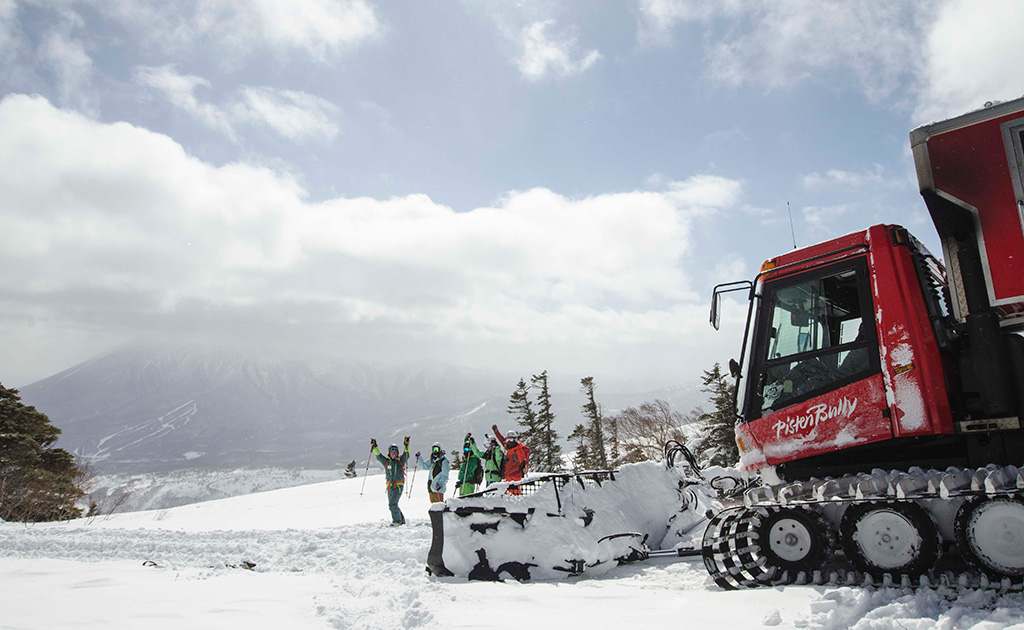
Daikokumori Cooperative trading as Hachimantai CAT Tours operate CATs in the Daikokumori backcountry area (formerly Hachimantai Ski Area). The CATs are used by several local accredited tour companies for guided backcountry tours. For more information, please inquire at your ski resort or accommodation.
Related Pages
+ An Onsen Ryokan Stay
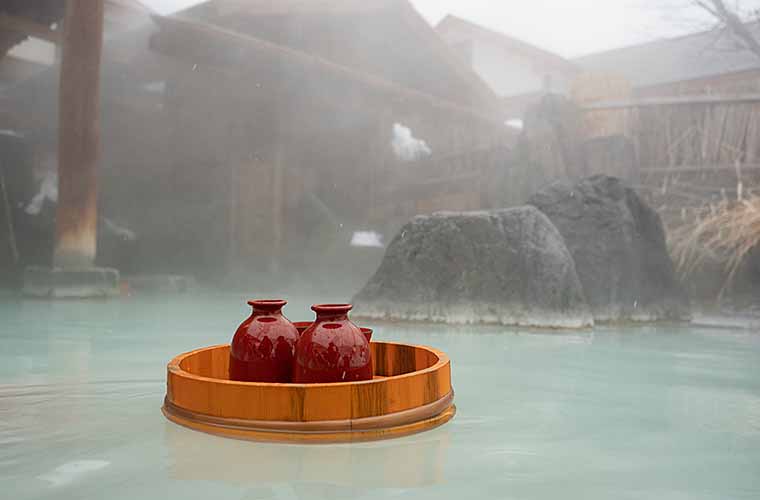
This is a double plus. Not only can you experience the generous hospitality of a traditional ryokan inn but you can also soak away your troubles in a natural onsen hot spring. Here is a list of traditional ryokan inn with on-site onsen located in Hachimantai:
Shin-Appi Onsen Seiryukaku
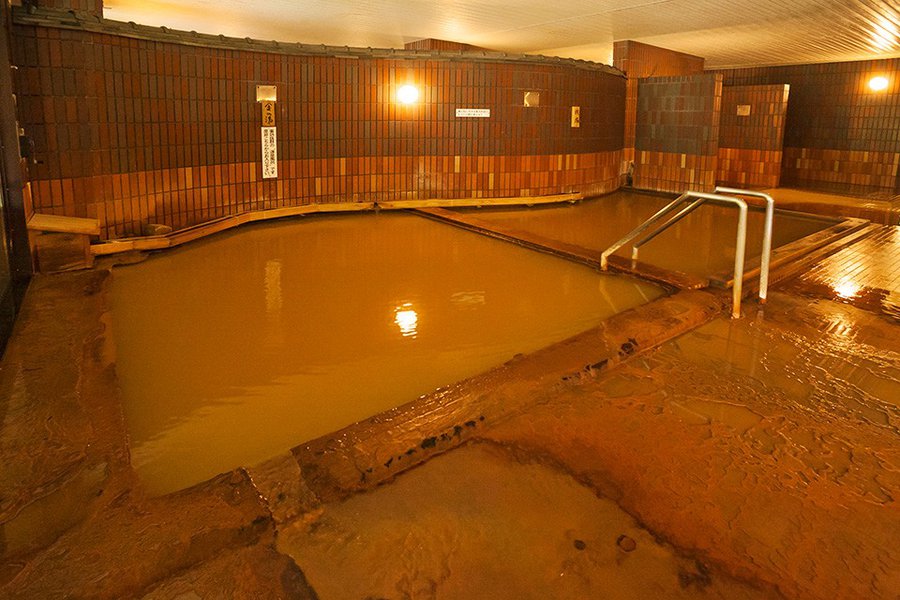
Matsukawa Onsen Matsukawa-so
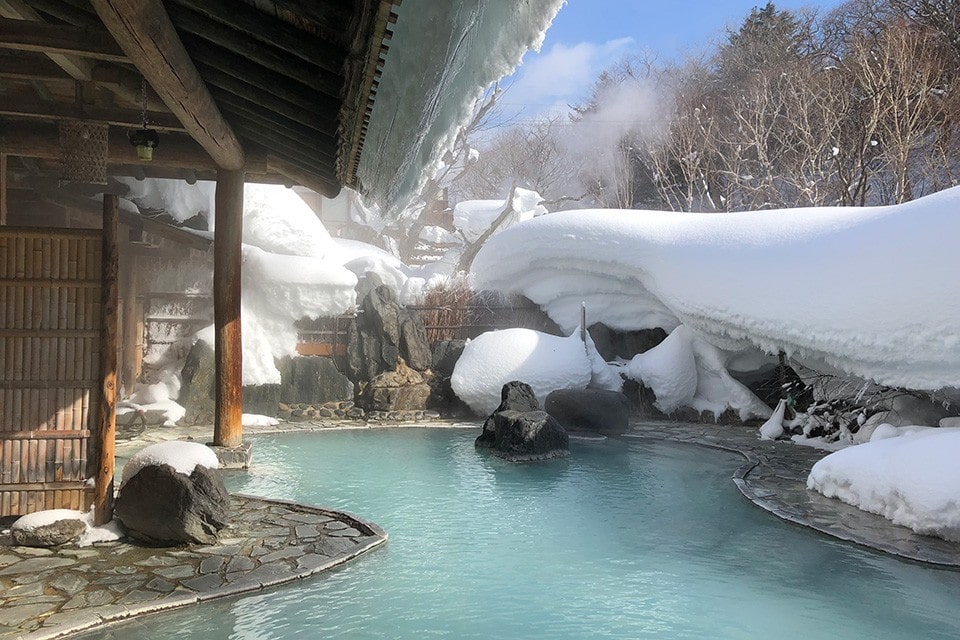
Tucked in at the base of the mountains, this tradition ryokan inn has both indoor and outdoor baths with lovely views of the Matsukawa River running below. Known for its high snowfall and located right next door to Japan’s first commercial geothermal power plant, the cloudy sulfur-rich hot spring will warm and soothe your body. Seasonal local produce features prominently in meals, including locally grown Iwate short-horn beef.
Matsukawa Onsen Kyoun-so

Renovated in 2024, the indoor baths at this charming and historic ryokan inn feature new larger windows that enhance the natural mountain scenery. Both the indoor and outdoor baths are perfect for ‘yukimiburo’ or gazing at the snow while you bathe, so soak your worries away in the milky white sulfur-rich waters. But the onsen isn’t the only thing that’s geothermal here – the entire inn is heated using geothermal steam! The friendly staff serve up delicious meals highlighting seasonal ingredients.
Shikikan Saitoh
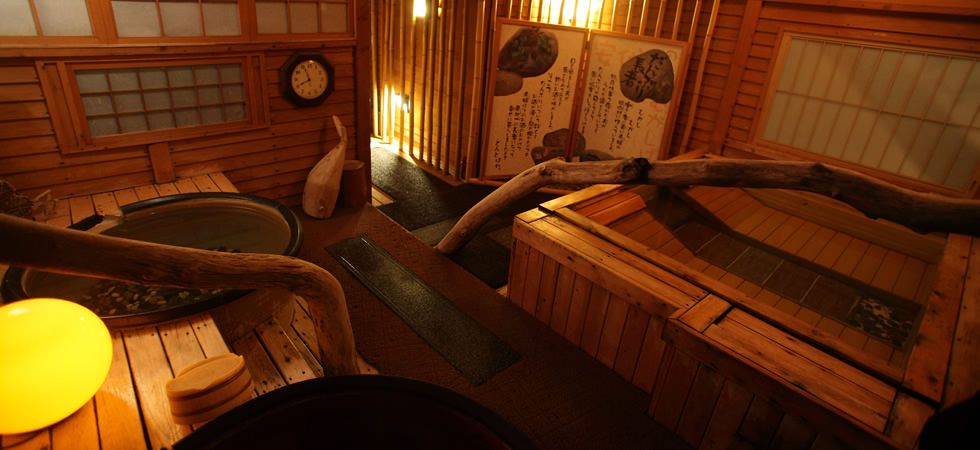
Shikikan Saitoh is a traditional ryokan inn centered on an onsen and inspired by the changing seasons. The mild alkaline spring is thought to make your skin more beautiful and treat cuts, burns, and chronic skin conditions. Featuring both indoor and outdoor baths with relaxing views of the surrounding forests, this is the perfect place to relax, unwind and take things at a slower pace.
+ New Year Tradition
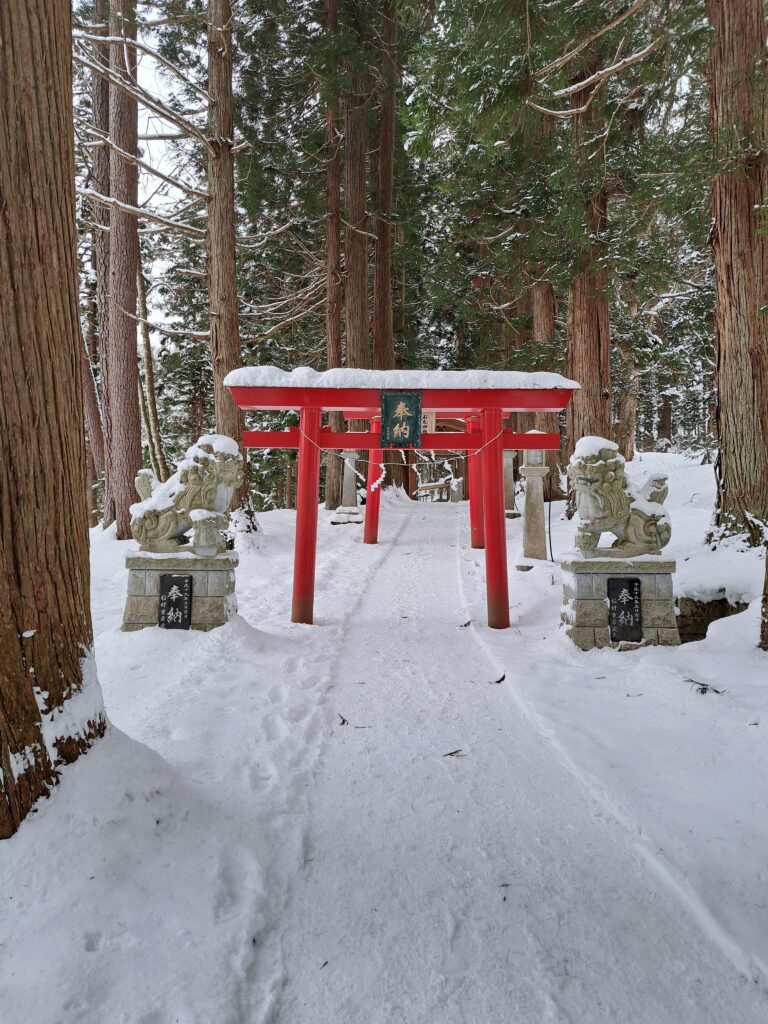
For the Japanese, New Year is the most important annual event with most spending the holiday with family and partaking in ‘hatsumode’ or the first shrine visit of the year. If you are in Hachimantai early in January, why not experience this later aspect of Japanese culture at Sakuramatsu Shrine?
Situated to the north of Appi Kogen in the Ashiro district, here you can say a prayer, write your wishes on an ‘ema’ board or check out the ethereal Fudo Falls located within the shrine grounds. You’ll need your own wheels to get here or ask at your accommodation about local tours.
Related Pages
+ Touring a Sake Brewery
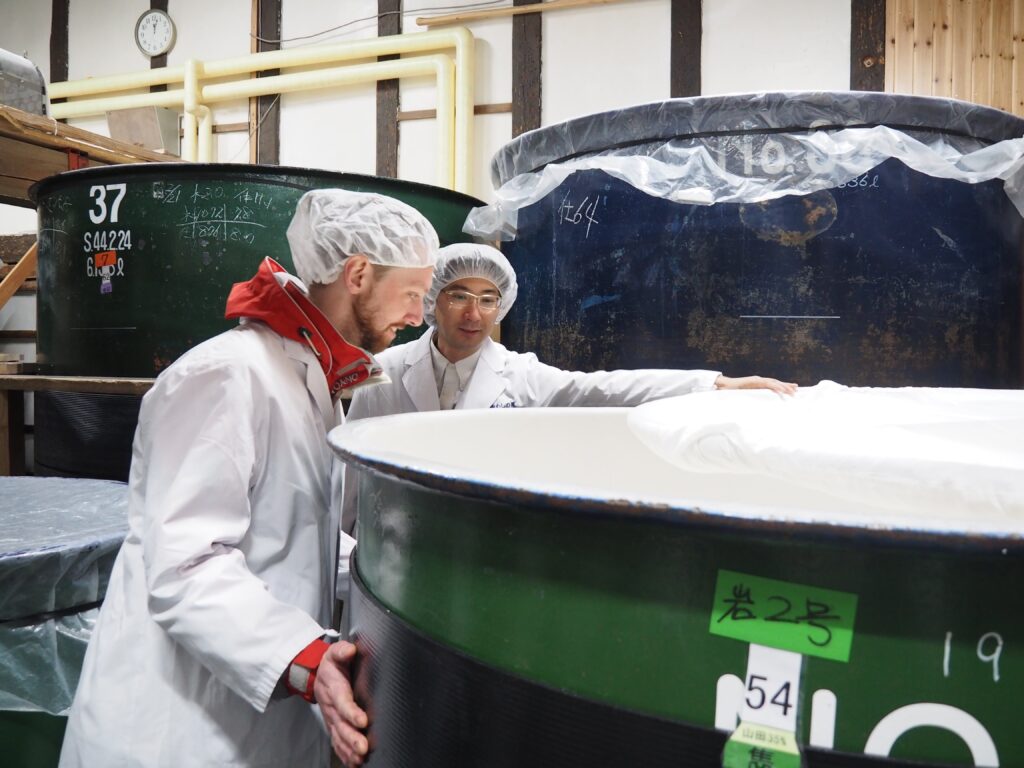
Local sake brewery, Washinoo which means ‘eagle’s tail’ in Japanese, has been creating sake at the foot of Mt. Iwate using local ingredients and pure underground water since 1829. On weekdays from January to March, you can tour their working sake brewery and enjoy sampling to compare flavors. You can also experience an optional ‘warimizu’ workshop where water is added in the final stage of production to adjust the taste of the sake.
For more information and bookings (essential):Wasinoo Contact Email
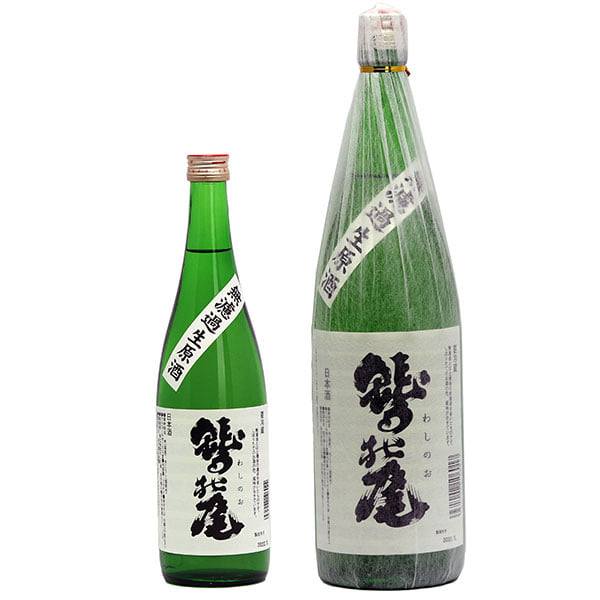
All information listed was confirmed at the time of publication. No responsibility is taken for changes made by third parties after this time.
All Categories
Recent Posts
Hachimantai Plus: Summer
Hachimantai Plus Kids: Green season guide
Hachimantai Plus: Spring
Tags.


